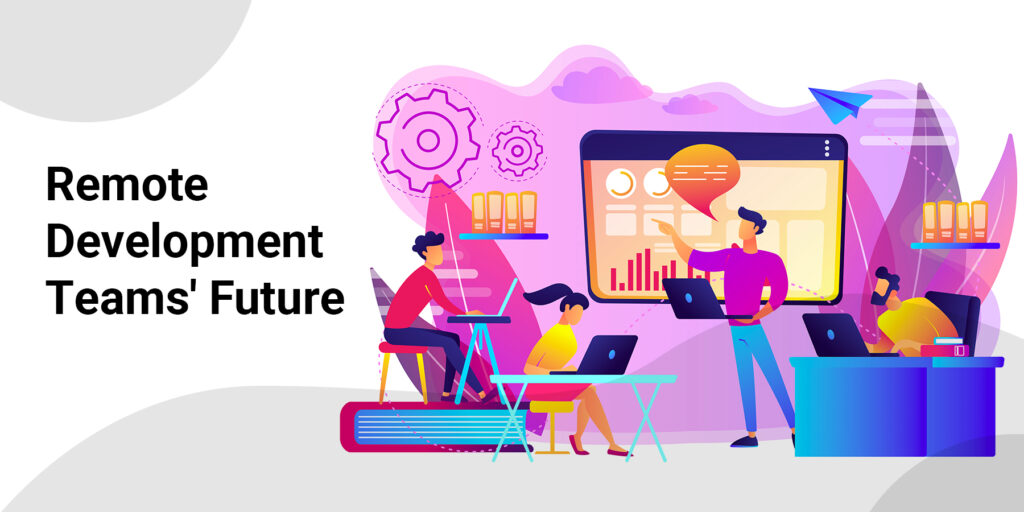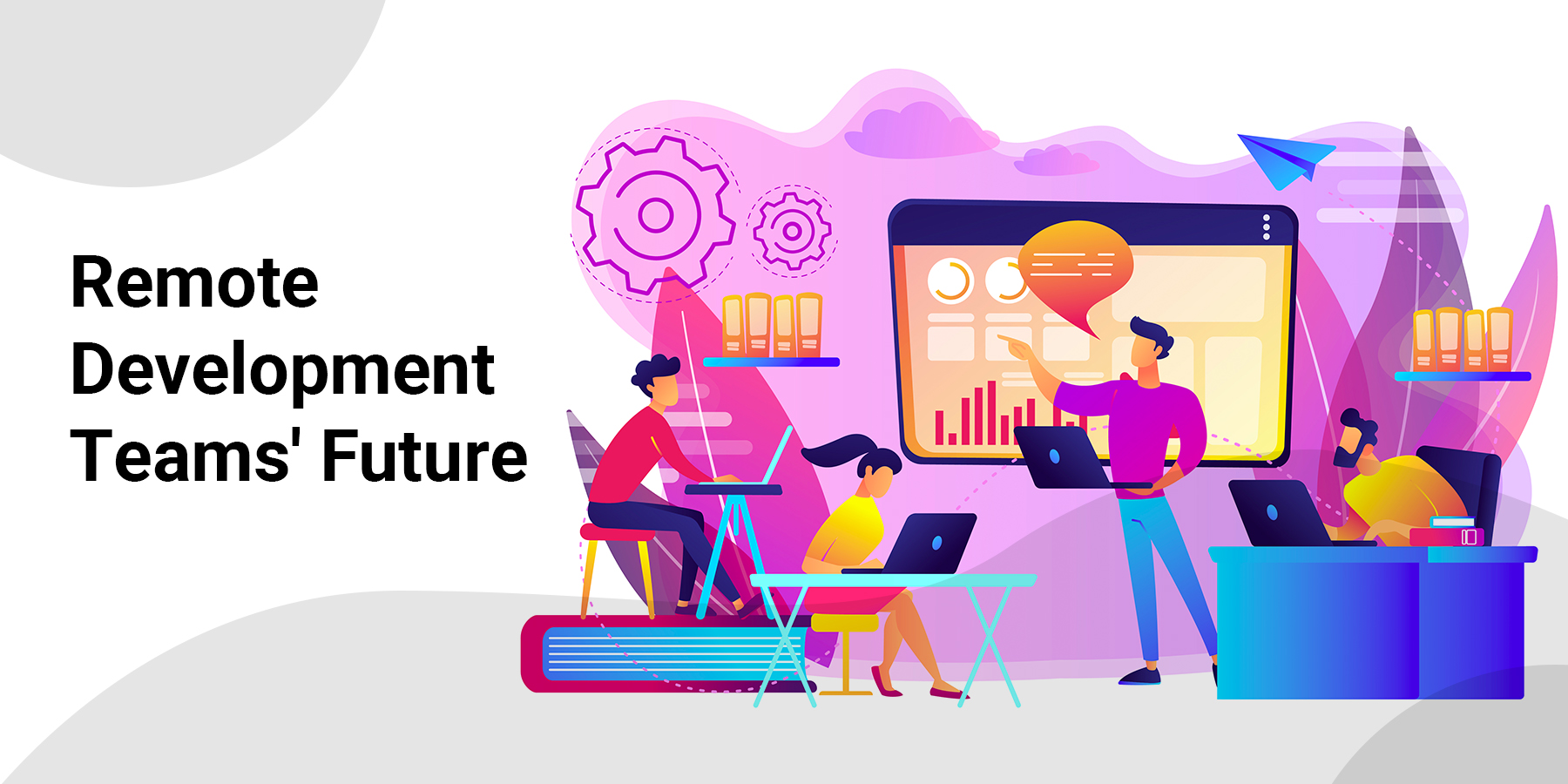
The way we work is changing. With more people working remotely, the need for effective leadership in remote development teams has never been greater. As businesses increasingly move to digital platforms and remote working environments, organizations must also adapt their approach to leadership. This article explores new models and strategies for leading remote development teams to maximize efficiency and collaboration in a distributed setting.
Virtual Team Building
Remote development teams present a unique challenge for traditional leadership models. To foster collaboration and communication, leaders must create new strategies that adapt to the digital environment. One of these strategies is virtual team building, which uses online tools such as video conferencing, instant messaging, and project management software to create an atmosphere of camaraderie among remote team members. Leaders can also use social media platforms and other online tools to coordinate team meetings, assign tasks, hold retrospective sessions, and provide feedback.
Remote Workflow Management
Leaders must also ensure that the remote team is working effectively and efficiently. This involves creating a streamlined remote workflow that allows team members to easily collaborate, access resources, and stay on track with their assignments. Leaders should be mindful of how they allocate tasks, provide feedback, and measure progress so that everyone knows their roles and responsibilities. Additionally, leaders should utilize project management tools such as Jira or Trello to track tasks and progress and provide workflow transparency effectively.
Effective Communication Strategies
Effective communication is critical to the success of any remote development team. Leaders should develop clear and concise communication strategies that all team members can easily understand. This includes setting up regular check-ins and using digital tools such as Slack or Zoom to ensure everyone is on the same page. Additionally, leaders should establish a culture of feedback wherein team members feel comfortable providing constructive criticism or suggestions. This can be achieved through one-on-one conversations or team meetings.
New Approaches for Developing Trust and Collaboration
Trust and collaboration are essential components of any successful remote development team. Leaders must find new ways to build trust and foster collaboration among their members, especially when they cannot meet in person. One approach is to create a shared vision and set of objectives that can be used as a guide for the team. Additionally, leaders should develop strategies to ensure an open line of communication between team members, such as setting up regular check-ins and encouraging feedback.
The Role of Technology in Facilitating These New Models of Leadership
Technology is crucial to creating effective leadership models for remote development teams. Leaders should utilize digital tools such as;
- Video conferencing and messaging platforms
- Project management software
- Online communication tools (Slack, Zoom, etc.)
- Social media platforms
This is to ensure the team can effectively collaborate and stay on track with their assignments. Technology can also streamline workflow, provide feedback, and measure progress. Additionally, technology can create an atmosphere of camaraderie among remote team members.
How Can Organizations Successfully Transition to These Models of Leadership?
Organizations can successfully transition to these new leadership models by implementing key strategies. Here are they;
Establish a clear set of objectives and expectations: Setting goals and expectations for the team can help ensure everyone is on the same page.
Utilize technology to aid communication and workflow: Digital tools such as Zoom, Slack, and Jira can help streamline processes and make it easier for team members to stay on track with their assignments.
Strategies for Ensuring Employee Engagement and Satisfaction
Leaders must also focus on keeping their remote development teams engaged and satisfied. One way to do this is by encouraging a collaborative environment where team members can offer feedback, support one another, and provide creative solutions to problems. Leaders should use tools such as polls, surveys, and discussion boards to encourage participation from the entire team. Additionally, leaders should be sure to provide recognition and rewards for outstanding work. This could be done through public acknowledgments or tangible incentives such as gift cards. Finally, leaders should create community by organizing social events and team-building activities.
Strategies for Maintaining Accountability and Quality Control
Accountability and quality control are crucial to the success of any remote development team. Leaders should set up systems wherein team members are held to a certain standard of work. This could be done by setting deadlines, tracking progress on tasks, or using project management software such as Trello. Additionally, leaders should establish a culture of feedback wherein team members feel comfortable providing constructive criticism or suggestions. This can be done through one-on-one conversations or team meetings. Finally, leaders should have regular check-ins with their teams to ensure they are on track and to identify any potential issues that need to be addressed.
Conclusion
The future of leadership in remote development teams is an ever-changing landscape. Leaders must find new ways to foster trust and collaboration among their members while maintaining accountability and quality control. Utilizing technology, creating a shared vision and objectives, encouraging employee engagement and satisfaction, and implementing systems of feedback can all help to ensure a successful transition to these new leadership models.
Are you looking to hire dedicated remote developers? RecruitNinjas is here to help you! When you hire remote development teams with our help, we ensure that they will work with complete dedication and build a unique, tailored solution that ultimately drives your business, besides enhancing overall ROI, improving productivity, and cutting operational costs.
Interested? Contact us today, and let’s get started!
Nandhini A
Nandhini A, with over 15 years of experience, currently serves as a Relationship Manager at Recruit Ninjas. Her expertise includes driving business process success, leading operations, and team development. She excels in optimizing efficiency and productivity, driving sales, and fostering high levels of customer satisfaction and retention.


 Remote Talent Acquisition: Strategies for Hiring Dedicated Remote Team Members
Remote Talent Acquisition: Strategies for Hiring Dedicated Remote Team Members The Top Offshore Software Developer Hiring Trends for 2023 and Beyond
The Top Offshore Software Developer Hiring Trends for 2023 and Beyond